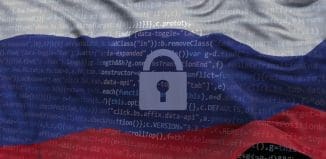The Danger of confusing Cyberespionage with Cyberwarfare
This post is also available in:  עברית (Hebrew)
עברית (Hebrew)
 China has recently been accused of intense spying activity in cyberspace, following claims that the country uses cyber tactics to gain access to military and technological secrets held by both foreign states and corporations. In this context, the rhetoric of cyberwar has also raised its head. Experts are questioning whether we are already at war with China.
China has recently been accused of intense spying activity in cyberspace, following claims that the country uses cyber tactics to gain access to military and technological secrets held by both foreign states and corporations. In this context, the rhetoric of cyberwar has also raised its head. Experts are questioning whether we are already at war with China.
According to Wired the danger lies at the heart of the cyberwar rhetoric. Declaring war, even cyberwar, has always had serious consequences. Since war is acknowledged as the most severe threat to the survival and well-being of society, war rhetoric easily feeds an atmosphere of fear, provokes a rise in the levels of emergency and instigates counter-measures. It may also lead to an intensified cyber arms race.
i-HLS Israel Homeland Security
It needs to be remembered that cyber espionage does not equate to cyber warfare – and in fact making such a link is unjustifiable.
Cyber espionage is an activity multiple actors resort to in the name of security, business, politics or technology. It is not inherently military. Espionage is finding information that ought to remain secret and as such, may be carried out for a range of different reasons and for varying lengths of time.
Conducting effective cyber espionage campaigns may in fact take years, and results can be uncertain. However engaging in long-lasting cyberwar activity is simply not sustainable as the costs of warfare are high, and the motives very different; gaining information is never the prime motive. War is waged in order to re-engineer the opposing society in order to support one’s interests and values. This holds true for cyberwar as well.
But that’s not to say that the two concepts aren’t inter-linked. Cyber espionage can be utilized in warfare and in preparation for war, as part of intelligence efforts, as well as preparing for peace. Plus, a long-lasting spying campaign that eventually becomes detected may lead to war if it is interpreted to justify pre-emptive or preventive actions.
However, the probability of cyberwar in the near future is low. What we should be more concious of is the use of cyber in conventional conflicts. Cyber capabilities are now classified as weapons; they are a fifth dimension of warfare — in addition to land, sea, air and space — and whilst it’s unlikely future battles will be completely online, it is difficult to imagine future wars or conflicts without cyber conflagrations.
But even if the concept of war has become vague, espionage should be regarded as a separate activity in its own right. For actions to qualify as war they, by definition, need to cause massive human loss and material damage — cyberespionage does not do this. For the majority, there is little to be gained from confusing cyberespionage with cyberwarfare, yet the potential losses in the form of increasingly restricted freedom and curtailed private space may be substantial.




























